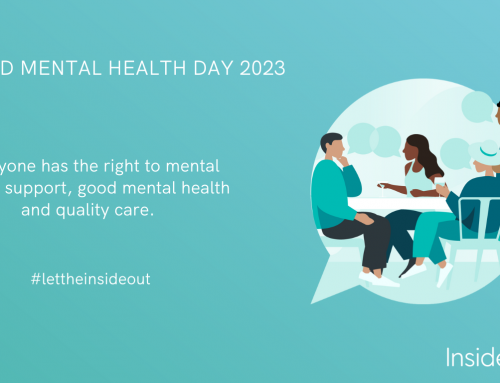Last week, in an online symposium run by my University for its MAPP-CP (Masters in Applied Positive Psychology and Coaching Psychology) students, I had the incredible opportunity to listen to and engage with multiple academics and practitioners from around the world in the fields of positive psychology, social science and medicine. These experts delivered lectures shared their thoughts on COVID -19 and the crucial role played by positive psychology, coaching psychology and other disciplines in these uncertain times. One session that stood out to me was by Dr Suzy Green, a renowned clinical psychologist and coaching psychologist who shared her thoughts on the role of positivity in a VUCA world. VUCA is an acronym for Volatile, Uncertain, Complex and Ambiguous. Prior to this lecture, VUCA to me was simply a managerial term, one I had only heard of when I skimmed through leadership blogs or popular business press.
However, as I reflected on the lecture by Dr Green I couldn’t agree more on the relevance of this acronym in today’s environment – not just from a business perspective for companies and the economy but also for us as individuals. Never have we as a species, well at least in the past 100 years experienced calamity, unrest and uncertainty on such a global level. And if this is our current reality and one that is probably going to hang around for a while, then how do we thrive and not just survive in this VUCA world? In this post, I want to focus on a well-validated phenomenon that can help us thrive in these uncertain times and that is the importance of eudaimonic wellbeing.
What is Eudaimonic wellbeing? Instead of looking to just ‘feel good’ at the moment or wait for these uncertain times to pass, why not use this time to seek your true nature and potential i.e. what is known as the eudaimonic approach in positive psychology. Researchers within the eudaimonic framework argue that there is more to life than just pleasure and satisfaction. Whilst subjective wellbeing focuses on instant gratification, the eudaimonic approach centres on valued outcomes, which would result in higher wellbeing when achieved (although it is maybe unpleasant at the moment or requires the deferral of gratification). For instance pausing and reflecting now in these uncertain times to understand what our true purpose, potential or goals are and then taking the appropriate action like training, or skill development or changing jobs to get there.
Eudaimonic wellbeing proposes that true happiness is found in the expression of virtue and doing what is worth doing. Eudaimonic wellbeing is also closely associated with psychological wellbeing, which is a key component to growth and happiness in a VUCA world. Positive psychology researcher Carol Ryff outlined six dimensions to optimal psychological wellbeing.
Do you know what your psychological wellbeing is at the moment? One way to check is to examine the characteristics within each dimension so you can gain more insight on what your psychological wellbeing may look like when optimal and when impaired. This has been adapted from Carol Ryff’s Psychological Wellbeing Theory.
-
Environmental Mastery
Impaired: Has difficulty in managing everyday activities; feels unable to change or improve the situation; is unaware of surrounding opportunities; lacks a sense of control over external events.
Optimal: A sense of mastery and competence in managing the environment; controls external activities; makes effective use of surrounding opportunities; is able to create or choose contexts suitable to personal needs and values.
-
Personal Growth
Impaired: A sense of stagnation; lacks a sense of improvement or development over time; feels bored and uninterested in life; is unable to develop new attitudes or behaviours.
Optimal: A feeling of ongoing development; sees self as growing and expanding; is open to new experiences and learning; has a sense of recognising own potential; recognises an improvement in self and behaviour over time.
-
Purpose in Life
Impaired: Lacks a sense of meaning or direction in life; has few goals and does not see purpose in past life; has no outlooks or beliefs that give life meaning.
Optimal: Has aims and goals in life and a sense of directedness; feels there is meaning to present and past life; hold beliefs that gives life purpose.
-
Autonomy
Impaired: Overly concerned with expectations and evaluation of others; relies on judgement of others to make important decisions; conforms to social pressures to act or think in a particular way.
Optimal: Self-determining and independent; able to resist social pressures; regulates behaviour from within; evaluates self by personal standards.
-
Self-acceptance
Impaired: Feels dissatisfied with self; disappointed with life so far; troubled with certain personal qualities; wishes to be different.
Optimal: Has a positive attitude toward self; accepts their good and bad qualities; feels positive about their past life.
-
Positive relations with others
Impaired: Few close, trusting relationships; finds it difficult to be open; isolated and frustrated in interpersonal relationships; unwilling to make compromises to sustain important ties with others.
Optimal: Warm and trusting relationships with others; concerned about the welfare and wellbeing of others; capable of strong empathy, affection and intimacy; understands the give and take of relationships.
So where are you in this spectrum? Some of us may be thriving in a domain whilst languishing in another. Psychological wellbeing is key to thriving in this VUCA environment. If you find yourself declining in one of the above domains, it’s useful to seek help with a coach or positive psychology researcher who can use positive psychology interventions help you cultivate positive feelings, behaviours or cognitions.
Author: Poornima Nair, Life Coach
Insta: @lettheinsideout






